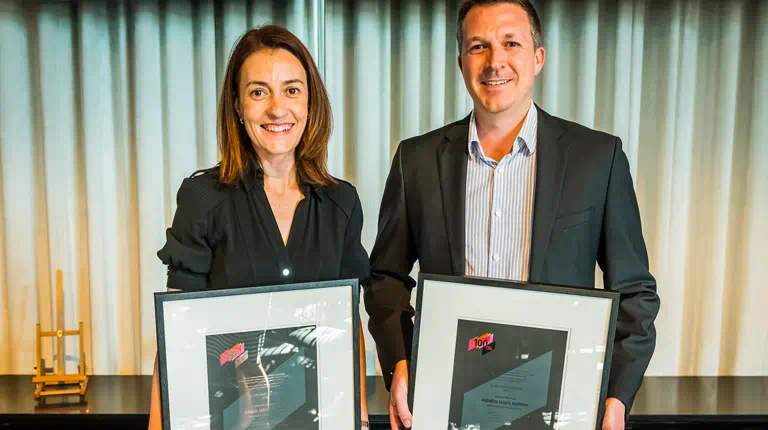Two Australian scientists have each been awarded an AUD$1.25 million, five-year, CSL Centenary Fellowship to further research into gentler, more effective cancer diagnostics and, to advance understanding of what really causes our arteries to clog.
Associate Professor Sarah-Jane Dawson and Associate Professor Andrew Murphy will be funded through the $25 million CSL Centenary Fellowships program, which was established in 2016 to foster excellence in medical research by supporting mid-career Australian scientists to pursue world-class research.
Associate Professor Sarah-Jane Dawson from the Peter MacCallum Cancer Centre is pioneering the use of ‘liquid biopsies’ for gentler, more thorough cancer testing.
She’s developing simple blood tests for a wide range of cancers as an alternative to painful, invasive tissue biopsies. The tests identify the tiny fragments of DNA shed by tumour cells into a cancer patient’s blood stream.
Having already been trialled in breast cancer patients, Sarah-Jane says the tests will help in every phase of treatment, quickly identifying the type of cancer, tailoring treatment to the individual, monitoring their progress, and - once the patient has completed treatment - checking for signs of relapse.
The CSL Centenary Fellowship will enable Sarah-Jane to develop the tests for some of the most common cancer types, and accelerate the translation of these tests from the lab into the clinic so they can benefit more of the 400,000 plus Australians living with cancer.
Associate Professor Andrew Murphy of The Baker Institute has his spotlight on ‘hematopoietic’ stem cells (the cells that give rise to all the other blood cells and reside in our red bone marrow). He wants to understand why high blood pressure, high cholesterol, lack of exercise and smoking drives the over-production of white blood cells leading to arterial plaques and often heart attack or stroke. Cracking the mechanism of action at a cellular level could lead to a new generation of drugs to fight cardiovascular disease.
With the CSL Centenary Fellowship he’s going to investigate:
- how changes in blood glucose influence white blood cell production;
- how a high salt diet encourages blood stem cells to leave the bone marrow;
- a therapy that might encourage bone marrow to make more blood stem cells when we need them for cancer treatment.
“At CSL, we are driven by our promise to save lives and protect the health of people around the world. We’re extremely proud to support academic research that holds the potential to change lives for the better. Our Centenary Fellowships honour CSL’s long legacy of contributing to innovative medicines, particularly for patients suffering serious diseases.”
CSL Chief Scientific Officer Dr Andrew Cuthbertson says Sarah-Jane and Andrew are the embodiment of what the Fellowships aim to achieve.
“Innovation is one of the core values that guide CSL’s significant investment into frontier medical research, so it is fitting that the Centenary Fellowships foster the best scientists in Australia who will shape the next generation of critical breakthroughs.”
“Growing skills and expertise through well-funded, long-term support is essential in helping the Australian research community continue to thrive,” Andrew said.
Media:
Christina Hickie
CSL Limited
+61 3 9389 3425
+61 429 609 762
Christina.Hickie@csl.com.au



